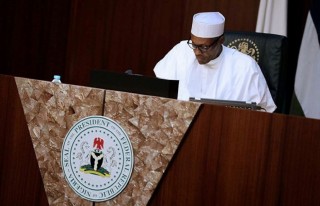In line with the ongoing Ease of Doing Business reforms, small businesses in Nigeria will be getting more support from the government under the provisions of the Finance Bill 2019 set to be implemented next year. Presented in October by President Muhammadu Buhari, the new legislation has undergone consideration and received approval for passage into law by the National Assembly.
According to the bill, small businesses with a turnover of less than N25 million are to be exempted from Companies Income Tax. This is expected to come as a relief to the lot of Small and Medium Enterprises (SMEs) in Nigeria, most of which already struggle to stay afloat in a hostile business environment.
Nigeria’s SMEs are starved of capital as poor access to finance constitute a major constraint for businesses. Similar challenges encountered by the sector include high cost of doing business and multiplicity of taxes, a problem the new bill looks to eliminate.
“The initiative is laudable and the proposed modifications to the fiscal rules around taxation are clearly aimed at creating an enabling business environment and alleviating the tax burden for small and medium enterprises,” accounting firm KPMG said in an analysis of the bill. “This is expected to encourage growth and investment by that sector of the economy.”
In addition to supporting small businesses, other objectives of the bill as outlined by President Buhari are to promote fiscal equity, reform domestic tax laws, introduce tax incentives for investments in infrastructure and capital markets, and more importantly, raise additional revenue for the government.
Improving tax revenues
On revenue generation, the bill provides for the implementation of several fiscal measures such as the proposed increment in the rate of Value Added Tax (VAT) from 5 to 7.5 percent and an expansion of the scope of companies’ income tax.
While the government plans to increase tax rates and expand the tax net, it is also looking to block loopholes in the current tax administration. If signed into law, the bill would bring drastic changes to Nigeria’s antiquated corporate tax laws.
The bill introduces a requirement for all companies to provide their Tax Identification Number (TIN) as a precondition to holding and maintaining a bank account in Nigeria. Meanwhile, existing account holders (opened prior to September 30th 2019) must provide their TINs to continue operating their accounts.
According to the Managing Partner of Prime Consult, Dr Gbenga Adebayo, requesting TIN shows that the government is determined to ensure that everyone pays tax, and would be ready to enforce remittance from the source or ask the bank to freeze the account of defaulters.
“FIRS has been freezing the accounts of tax defaulters, and insisting on TINs of both new and existing account holders is a drastic move to enforce compliance. The TIN could be used to monitor/track people’s accounts and curb default,” Adebayo explained.
With unrestricted access into the bank accounts of companies, businesses are now open to paying taxes more than ever. And to reduce tax evasion, commercial banks are required to play a significant role under the new policy. “It will no longer be business as usual regarding tax collection,” Tax consultant Tayo Oluwole was quoted as saying by Nairametrics. “Banks are being used as agents for both tracking and collection.”
Apart from changes to the Companies Income Tax Act and VAT, the new legislation also revises laws on petroleum products tax, individual income tax, the customs and excise tax, and stamp duties rules.
The bill has been welcomed by most stakeholders. “The presentation of the Finance Bill by the Executive… is a welcome development as this is unprecedented since Nigeria’s transition to democracy in 1999. It is sincerely hoped that the precedent set this year will become the norm in the years to come in accordance with global best practices,” KPMG added.
Speaking on the sidelines of the Executive Session on Finance Bill and Tax Strategy, Taiwo Oyedele, Partner and West Africa Tax Leader at PwC Nigeria, told CNBC that the bill is in line with global best practices and offers potential positive impact for Nigeria’s economy.
With the House of Representatives making a decision to pass the bill late last month, provisions of the legislation will come into effect on January 2, 2020, according to Nigeria’s Minister of Finance, Budget and National Planning, Zainab Ahmed. She added that the bill would be revised yearly, as that the government plans to grow the ratio of revenue to Gross Domestic Product (GDP) from 6 percent to 15 percent by 2023, with a greater percentage of revenue coming from non-oil sources such as taxes.








